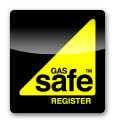Gas Safety Tips
Carbon Monoxide Poisoning
If you believe you can smell gas:
• Turn the gas supply off immediately at the meter
• Extinguish all sources of ignition
• Do NOT smoke
• Do NOT operate electrical light or power switches
• If necessary, ventilate the building by opening windows and doors
• Ensure access to the premises can be made
• Report the gas escape to Transco on :
0800 111 999
What is Carbon Monoxide (CO) and where does it come from?
Carbon Monoxide (CO) is a highly poisonous gas produced when any fossil fuel burns incompletely.
It has no smell, taste or colour. It leaks from flues, cooking and heating appliances when they have been poorly maintained or simply break down. Even adverse weather conditions have been given as the official reason behind leaks of CO that proved fatal.
What can Carbon Monoxide do to me?
Carbon Monoxide bonds with the haemoglobin in your blood and subsequently replaces the oxygen needed to sustain your brain and body.
It can kill quickly when it leaks in large quantities or can build up over a period of time, initially causing symptoms such as headaches, nausea and dizziness. These are often incorrectly diagnosed by the medical profession as flu.
Who is at risk from carbon monoxide poisoning?
All humans and animals are at risk from carbon monoxide poisoning. No one is immune. ROSPA report around 200 deaths in the UK each year and many more injuries from CO poisoning in the home. Experts believe that those most at risk are young children, the elderly, pregnant women and people with respiratory problems.
How do I know if I am suffering from carbon monoxide poisoning?
It is very difficult to diagnose carbon monoxide poisoning because of its similarity to other illnesses such as flu. However, asking yourself the following questions may help:
• Are others in the house feeling ill as well?
• When you leave the house for a period of time, do you feel any better?
If the answer is yes, then you may be suffering from CO poisoning. The only way to be sure is to see your doctor and request a carbonxyhaemoglobin test. This will tell you the amount of CO present in your blood.

Leinster Gas | 483 Green Lanes | N13 4BS | 07883 083190

Copyright © Leinster Gas 2020 | Design by Meaninfulldesign





